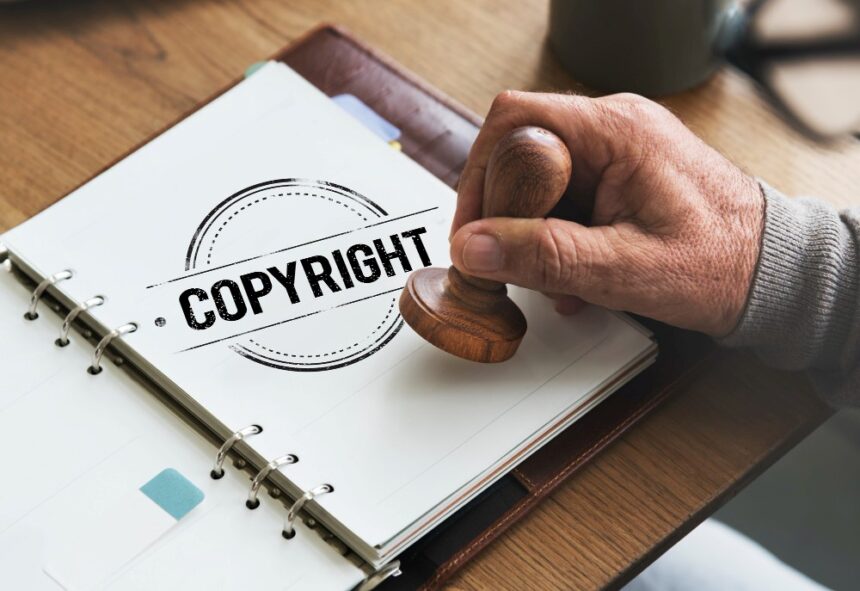In 2024, 38,000 copyrights and 280,000 industrial trademarks were registered in India. Owing to these figures, India is one of the top countries for patents, trademark registrations, and copyright registrations.
However, not every product can be patented nor every idea licensed. Let’s take a look at the differences between the different types of registrations and how they are applicable vis-a-vis specific creative properties.
Protecting Your Intellectual Property: Different Types of Registrations
In India, for any intellectual property, whether it is a symbol, image, creative work, or unique design, people can go for a registration. This offers protection from unauthorised use and infringements.
However, these will vary depending on the entity that you want to protect and the level of protection that you want to avail. Based on this, the below options are available for protecting any unique product, design, or entity.
Trademark Registration
Any unique name, design, symbol, or combination of these can be registered with the Trademark Registrar. This allows the brand, company, or entity to use the ® symbol beside their unique name or design.
Requirements and Eligibility Criteria to Meet
To register your unique logo, name, or design, it needs to meet the following:
- Distinct from others of its kind.
- Does not conflict with any existing trademarks.
- Should be meant for use with actual goods or services.
- Must comply with the Indian Trade Marks Act of 1999.
- There should be no prior registration of similar marks.
Benefits That You Can Receive
With trademark registration, companies and holders of the registration can enjoy the following:
- Exclusive use of the design and legal protection to do so.
- Brand Recognition via the unique symbol/ image.
- Deters people from using the same or similar symbol.
- Allows people to recognize the image from counterfeits.
- The symbol, name, or image becomes an asset that can be sold or licensed.
- The ® symbol signifies legal protection for the brand.
- Allows the trademark registration holder to seek priority over domain names that match their name or symbol
- Offers protection even in international markets.
- Seek legal remedies for any issues associated with infringement.
- Builds credibility and increases the market reputation of the brand.
- Prevents unauthorised use on e-commerce platforms.
Limitations to Keep In Mind
However, people opting for a trademark registration need to keep the following in mind:
- Trademark goods can be sold and imported at a value different from the list price without the consent of the owner.
- The owner has no rights beyond the first sale.
- The brand image can be made generic with repetitive use.
- There is no trademark registration available just for functionality.
- The registration will protect only those goods and services that are listed under the specific image or brand.
Copyright Registration
Creative works that are either published or unpublished can be licensed by the creator to prevent unauthorized commercial use.
Requirements and Eligibility Criteria to Meet
To register under the Copyrights Act of 1957, the entity in question must be one of the below:
- Literary Works (excluding computer programs)
- Musical Works
- Artistic Works
- Cinematographic Films
- Sound Recordings
- Computer Programs, Lists, Tables, and Compilations
Further, to apply for copyright registration, you need to be the creator/ author, assignee, publisher, or producer of the work.
Benefits That You Can Receive
By opting for copyright registration, you can enjoy the below benefits:
- Acts as the legal proof of ownership.
- Provides legal protection and exclusive right to use.
- Offers legal remedy in case of any infringement.
- Allows the owner to claim damages.
- Increases the commercial value of the creative work.
Limitations to Keep In Mind
If you are a person applying for a Copyright Registration, you need to keep the following in mind:
- Library and Archives are allowed to make copies of certain kinds.
- These are free for use in educational contexts.
- Research and private use of copyrighted works is allowed.
- Under the Fair Dealing concept, these works can be used in criticism, peer reviews, and judicial proceedings.
- These can also be used for non-commercial public broadcasting.
Patent Registration
Under the Patent Act of 1970 and the Patent Regulations Act of 1972, a creator can protect their intellectual property from unauthorized use and being copied without permission.
Requirements and Eligibility Criteria to Meet
The product that is patented needs to be a unique invention that is one of the following:
- A novel physical product
- Method for achieving a said task.
- Machines or mechanical parts.
- Manufactured goods with distinct qualities.
- Chemical formulae
- Software and Digital Innovation
To apply for a patent, your idea or design needs to be novel, non-obvious, and unique.
Benefits That You Can Receive
By opting for a patent registration for your unique creation, you get the following:
- Protection of your creation.
- 20 years of exclusive use.
- Proprietary rights as the creator.
- Ability to sell, transfer, or license the product.
- Seek funding and generate royalty.
Limitations to Keep In Mind
The following cannot be patented in India:
- Scientific discoveries
- Creative works
- Inventions that are against public morality or harmful in nature.
- New methods for mental activities, games, and business plans.
To Conclude: Choosing the Right Option for Your Brand
Considering all three cater to different entities, you need to identify your product and the purpose it serves. Thus, if it is just a name or symbol, you need to opt for trademark registration. For creative works, a copyright registration is required. If the invention or innovation is a product, a novel method, or design then it needs to be a patent registration.
Thus, evaluate your needs and apply for the intellectual property registration applicable to your case.










 /home/u448362301/domains/theexpotab.com/public_html/wp-content/themes/foxiz/templates/popup.php on line 167
/home/u448362301/domains/theexpotab.com/public_html/wp-content/themes/foxiz/templates/popup.php on line 167